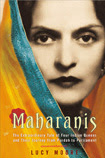Delhi is Not Far, Ruskin Bond.
A quiet, gentle novella, with all the classic charm and deceptive simplicity of vintage Ruskin Bond. In fact, it *is* vintage Ruskin Bond, the revision of a story he wrote in the 1960s when he moved from Dehradun to Delhi, before he became disillusioned with big-city life and moved back.
What is startling, and different from classic Ruskin Bond, is the frank depiction of a three-way love story between two young men and a young woman.
Elsewhere in Bond stories you catch the hints of homoerotic love. Here it is one of the main themes. The narrator is Arun, a young, frustrated literary writer who churns out bad detective novels to earn a meagre existence in the small town of Pipalnagar; he meets and falls in love with another young man, Suraj, a walking street vendor of perfumes and knick-knacks. They both befriend, make love to, and have deep affection for Kamla, a young prostitute married to a much older man. Arun's growing love for Suraj forms a central thread through the story, and the depictions of his love-making with Kamla are brief but powerful.
Elsewhere in Bond stories you catch the hints of homoerotic love. Here it is one of the main themes. The narrator is Arun, a young, frustrated literary writer who churns out bad detective novels to earn a meagre existence in the small town of Pipalnagar; he meets and falls in love with another young man, Suraj, a walking street vendor of perfumes and knick-knacks. They both befriend, make love to, and have deep affection for Kamla, a young prostitute married to a much older man. Arun's growing love for Suraj forms a central thread through the story, and the depictions of his love-making with Kamla are brief but powerful.
The other main theme is the town of Pipalnager, and the Mohalla (roughly, neighborhood) in which Arun lives. He longs to escape, to the wider world of books and ideas and opportunity represented by Delhi, but is trapped by his melancholy, his fear, his inertia. The characters of Pipalnager -- the barber, the junkyard man, the beggars -- are so affectionately, so compassionately sketched that one suspends disdain at them being somewhat sterotypical.
These characters form the basis of small-town life, where there is no anonymity like the big city, but no privacy either; where these friendships and associations ease daily living but offer no safety net either; where dreams are hobbled by lack of imagination and action by lack of passion. Bond captures these in quick, deft strokes, convincingly and with quiet humor. It is clear none of the other characters will leave Pipalnager, even though Delhi is not far; will Arun and his two loves?
These characters form the basis of small-town life, where there is no anonymity like the big city, but no privacy either; where these friendships and associations ease daily living but offer no safety net either; where dreams are hobbled by lack of imagination and action by lack of passion. Bond captures these in quick, deft strokes, convincingly and with quiet humor. It is clear none of the other characters will leave Pipalnager, even though Delhi is not far; will Arun and his two loves?
There is no highlighted irony here, no drama, no explicit struggle with complex ideas or conflicts. There is mostly clean, lyrical, simple writing that comes perilously close to sheer sentimentality but does earn its rich prose:
"Hills of green and grey rock, misty at dawn, hazy at noon, molten at sunset; where fierce fresh torrents rush to the valleys below.
A quiet land of fields and ponds, shaded by ancient trees and ringed with palms, where sacred rivers are touched with temples; where temples are touched by the southern seas.
This is the real land, the land I should write about. ..."
The attachment, the reverence, the love for the land, for his soil, is unabashed and actually quite powerful. I was prepared to be warmed but left without substance, and I think the book is more than that.
3.5*
(Nov 2010)



















